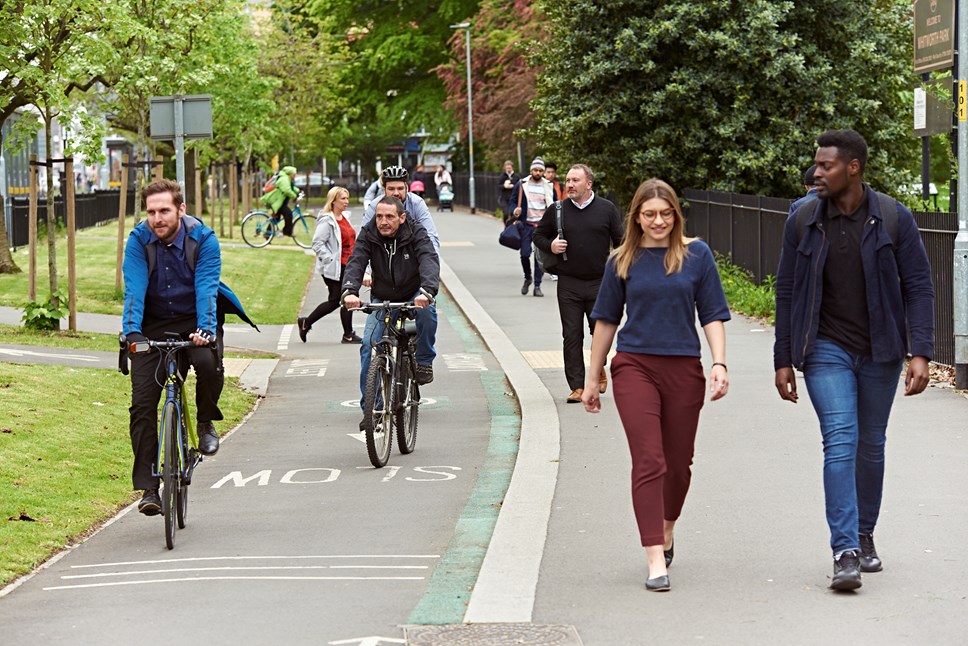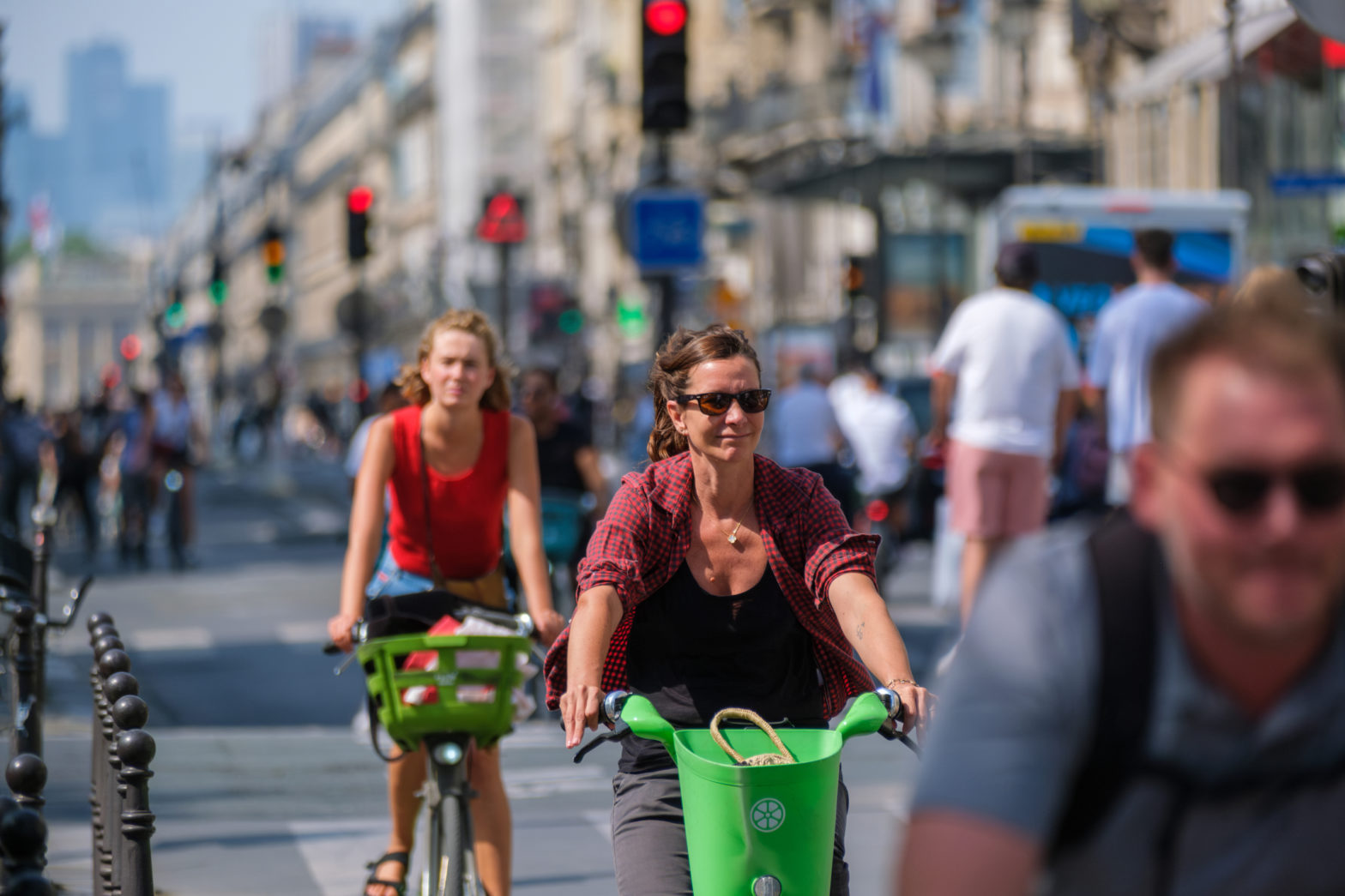
Photo: TfGM
Manchester to install AI sensors to boost active travel
13 August 2021
by Christopher Carey
Transport for Greater Manchester (TfGM) will install 100 AI-powered sensors around the city-region to collect real-time data on cycling and walking.
The transit operator has partnered with Vivacity Labs for the project, as part of its plans to develop an extensive active travel network across the city.
The sensors will use artificial intelligence and machine learning to capture anonymous traffic counts across a selected ‘count line’, and can show the interactions between pedestrians, cyclists, and other vehicles.
Richard Nickson, TfGM Programme Director for Cycling and Walking, said: “We’ve already made great progress this year in delivering the UK’s largest cycling and walking network and have many more schemes in the pipeline as we look to give people a genuine alternative to the car, reduce congestion and help improve air quality.
“By enhancing our monitoring capabilities, we can more effectively measure the success of this substantial investment and better understand the use of active travel modes across the region to inform our long-term strategy and delivery.”
The sensors will be installed within the city’s smart junctions programme, creating a network for travel data insight in the city.
Further installations of the units are expected as the project expands.
Sunderland transport challenge
In April, the UK government set a target of reducing emissions by 78 percent by 2035, when compared to 1990 levels.
This has increased pressure on cities to reduce their largest source of emissions – road transport.
Last month, Sunderland City Council launched a challenge for the development and trial of a solution to shape sustainable transport modes in the northern English city. Run in collaboration with the Digital Catapult, the competition offers £10,000 (US$13,800) for the winning innovator.
The challenge invites start-ups and medium-sized businesses to develop solutions which will help engage employees and residents in the city to capture reasons behind travel choices and understand mobility patterns.
Data gathered will be used to understand how transport choices interact with other factors such as traffic congestion and the weather, and the insights will feed into the council’s transport strategy.
“Engaging with our business community to showcase their technological skills sits at the core of this transport challenge,” said Councillor Graeme Miller, Leader of Sunderland City Council.
“SMEs are the backbone of our country, developing and delivering innovative solutions to drive the UK forward. Working collaboratively with these talented businesses and our partner, Digital Catapult, represents an exciting opportunity to evolve innovative tech solutions aligned to Sunderland Our Smart City’s objectives for a dynamic, healthy and vibrant urban centre of the future.”
Image: TfGM







